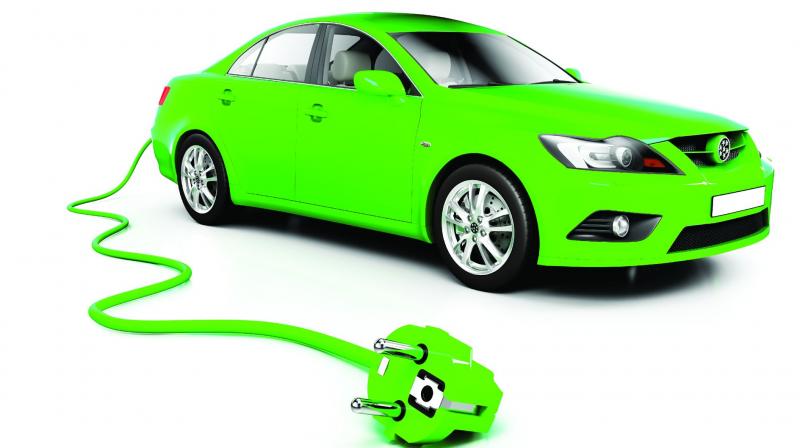South America resists electric vehicles

Meeting in Brazil this week, auto executives from Toyota to GM talked up traditional fuel sources like ethanol, natural gas and diesel, underlining how South America’s protected auto market is likely to resist a broader global move toward electric vehicles for years to come.
Even as automakers revamp their global businesses to focus on electric cars in Europe, North America and Asia, executives who oversee production in Brazil and Argentina are still prioritizing internal combustion engines - in part because of subsidies for locally plentiful fuels.
“The future of Argentina’s energy is natural gas,” said Cristiano Rattazzi, who heads the country’s unit of Fiat Chrysler Automobiles, as well as its automakers trade group. He added that diesel fuel, out of favor in much of the world, also still has potential in Argentina.
Argentina’s natural gas production is expected to increase dramatically as foreign oil companies and state-owned YPF pour investment into Vaca Muerta, one of the world’s largest shale gas reserves.
Aurelio Santana, executive director of Brazil’s auto trade group, had similar things to say about ethanol, which powers many of Brazil’s cars.
“It’s very important that the government supports investments in research and development involving ethanol,” Santana said. “We need to maintain what we already have here.”
The desire to stick to what they know underscores the political sway of local energy producers. Recently, Brazil’s legislature issued a series of tax incentives, dubbed Rota 2030, which offer significant benefits to car makers who choose to invest in ethanol research.
The event took place in Sao Bernardo do Campo, the historic home of Brazil’s auto industry, which is still reeling from the shock earlier this year that Ford Motor Co would be shutting its plant in the city.
DIPPING TOES IN
Toyota Motor Corp is so far the only automaker to announce that it plans to make even a hybrid model in South America, featuring an engine that can run on electricity or either pure ethanol or gasoline.
“It’s the best solution for our region,” said Celso Simomura, Vice President for Toyota’s Brazil operation.
General Motors Co earlier this month announced an investment of 10 billion reais ($2.58 billion) in Brazil over the next five years, but none of that will go to electric cars, said Carlos Zarlenga, GM’s chief for South America.
GM will start importing electric vehicles this year to test the market, he added, but there are no plans yet to build them domestically.
Volkswagen AG’s top executive for South America and the Caribbean, Pablo Di Si, said the German automaker was going to import six electric or hybrid models to Brazil by 2023. But he also said there were no plans to produce them locally.
“In Latin America, we need to consider all the caveats,” Di Si said, pointing to the lack of a legal framework for electric vehicles and not enough charging infrastructure. Volkswagen wants to sell 1 million electric vehicles globally by 2025.
Fiat’s Rattazzi was confident that the old ways would survive in South America in the medium term.
“In 2030,” he predicted, “the combustion engine will still have a place.”

